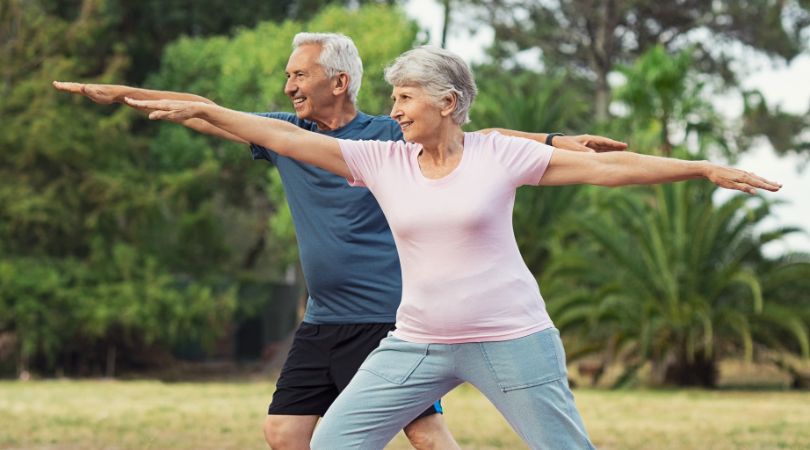Exercise is essential for everybody regardless of age, never more so than as we age when as little as 20 minutes of daily exercise can enhance resilience and combat frailty in those aged over 65.
A recent study by Oxford Academic (which you can link to here) with research conducted on a group of 168 people, found the following.
Body:
A mere twenty minutes of exercise worked into the daily routine can make a significant difference in the lives of older adults. Frailty is not an inevitable part of aging and can be prevented and reversed through physical activity. Engaging in regular exercise has been shown to improve muscle strength, balance, and enhance overall physical and mental well-being.
Mind:
The benefits of physical exercise extend beyond physical health. Exercise also positively impacts cognitive function, reducing the risk of cognitive decline and enhancing mental resilience. Not only does exercise strengthen the body, but it also boosts confidence and independence, allowing older adults to maintain an active lifestyle and engage more fully in daily activities.
Recommended exercises include walking, strength training, and balance exercises.
Walking is a low-impact activity that can be easily integrated into daily life and offers numerous cardiovascular benefits.
Strength training exercises, such as lifting weights or using resistance bands, help to build muscle mass and improve overall strength.
Balance exercises, such as yoga or tai chi, are particularly effective in reducing the risk of falls and improving stability.
It should be noted that consultation with healthcare professionals before starting any exercise regimen is recommended. You also need to consider individual capabilities, preferences, and any pre-existing health conditions when designing an exercise programme. And, if you engage in your chosen form of exercise with others, or as part of a group, you get the added benefit of enjoying the social benefits too.
Diet:
The group in this study also ensured that each person enjoys a minimum of 1.2g of protein daily, the recommended daily intake for an adult aged over 65, something that is important to be mindful of as quite often tastes change as we age.
This study took place here in Ireland, under the care of a team from University College Dublin, Trinity College and Munster Technological University in conjunction with six general practices from across the country.
It found that significant improvements could be found in many areas, including reversal of frailty, better grip strength, increased bone mass, and improved activity levels.
By investing just twenty minutes daily in the right exercise and ensuring that diet is right, individuals can significantly improve physical health, cognitive function, and overall well-being.


